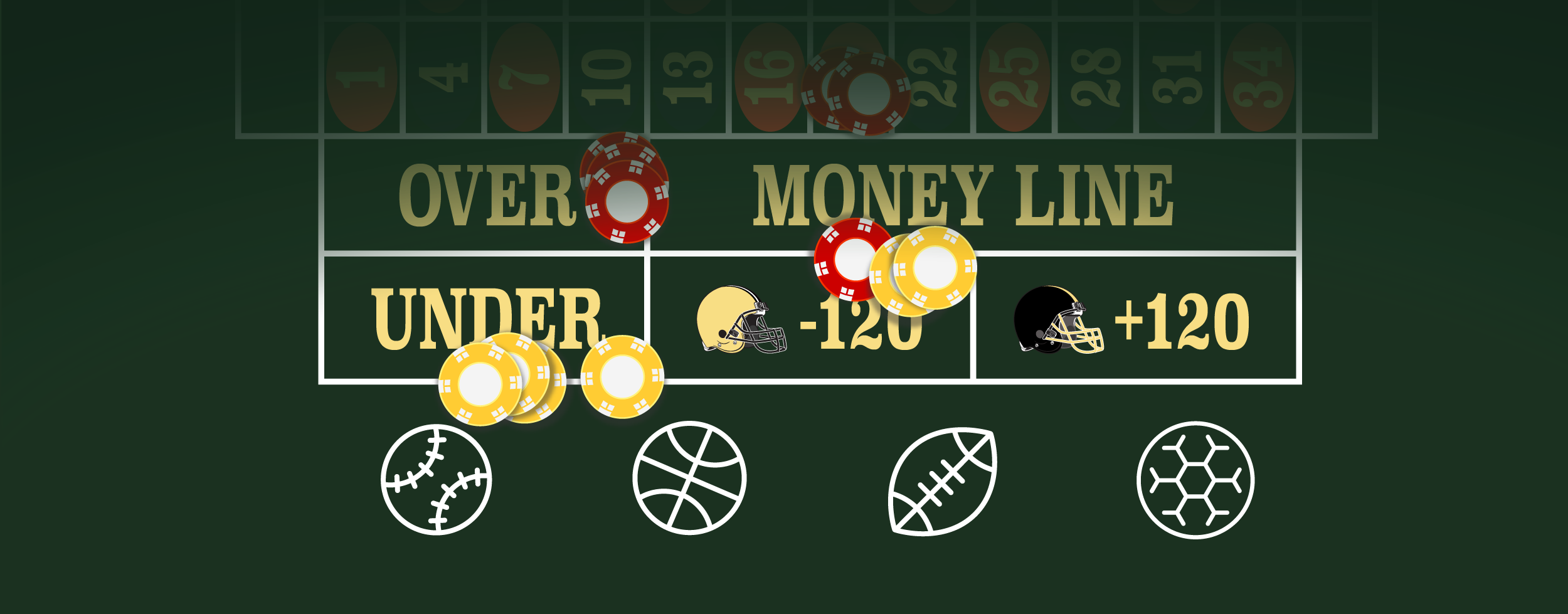
As the National Football League begins its 2021 schedule, nearly half the states in the U.S. now offer online sports betting.
Whether you ever plan to try online gambling or not, sports gambling terms are becoming more ubiquitous as sports betting becomes more mainstream.
"Over 30 different online-only sports books are licensed and live throughout the U.S.," said Andre Zammit, head of trading at Tipico online sports book. "Expect to see and hear a lot about sport betting in pop culture this fall."
Gannett, the parent company of USA TODAY, has a partnership with Tipico, one of the top sports betting companies worldwide.
So where to start?
Knowing a few key terms, defined by SportsbookWire.com, can help you in conversations as well as wading through the visual overstimulation on some of these online gaming sites.
"Taking the under" or "taking the over" are terms that seem to pop up more frequently lighter non-sports conversations. Maybe it's an inappropriate comment about someone's stated weight or age or maybe how long someone's marriage might last.
The wager asks simply do you think the final result will be higher or lower than the number a sports book sets. Often the number is the sum of the two opposing teams' scores or how much or how often a player might score in a game.
For the Super Bowl last year, FanDuel set the under/over at 55.5. The Tampa Bay Buccaneers beat the Kansas City Chiefs 31-9, totaling just 40 points and rewarding all those who took the under.
You could also bet on player's performance such as: Will NBA star Steph Curry's points or 3 pointers in a game exceed the number set by a sports book.
One of the more confusing terms in the sports betting world to the uninitiated can be the pluses and minuses such as Dallas Cowboys +320 or Tampa Bay Buccaneers -420, which Tipico set for the NFL opener on Thursday night.
The numbers — officially called a money-line bet — tell you if your team is favored (minus sign) and by how much. A -420 meant the Buccaneers were highly favored, and to win $100, you needed bet $420. Tipico offered the 420-100 ratio for however much money you bet Thursday night. A closer look:
Beyond money-line bets, you'll see sports books set similar payout rates for everything from the over or under (see above) of a game's score to who will score the first and last touchdowns in a game.
Possibly one of the easiest bets to understand is the points spread.
Sports books set a margin of points that a team must win by or the other team can't lose by. That’s why you’ll often hear people say a team won, but they “didn’t cover the spread” so their bet still came up short. A closer look:
Sports books aren’t in the business of predicting who will win or lose games. Their goal is to set a point spread that will draw an equal amount of betting action/volume for both teams so as much money is bet on the favorite as the underdog.
The vast majority of point spread wagers are made on football and basketball because of many more points are scored compared to sports like baseball and hockey.
If you are considering trying out online sports betting this NFL season, here's a look where online and retail sports books are active.
There are dozens of companies vying for your money as evidenced by the parade of online betting advertisements that fill sports broadcasts. Not all, though, are licensed in each state.
One other note: Your computer or smartphone must be located in a state where online gaming is legal to place a bet. So if you’re visiting a state, say, South Carolina, you won’t be able to place a bet.
Contributing: John Holler
Published Updated
https://ift.tt/3C7JAvM
Sport
Bagikan Berita Ini














0 Response to "Plus or minus? The over or under? What's a moneyline bet? Breaking down sports betting terms. - USA TODAY"
Post a Comment